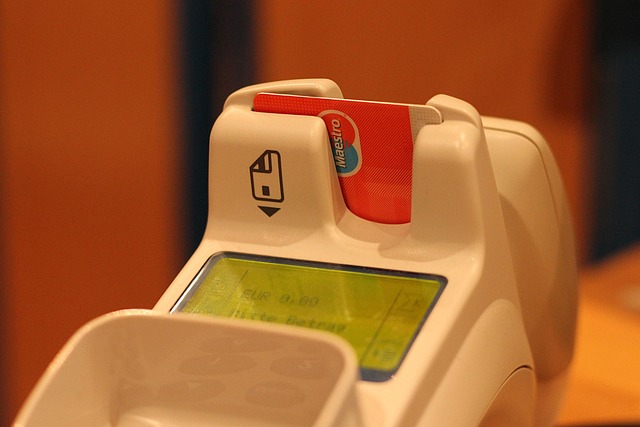Credit checks play a pivotal role in short-term rental applications, allowing landlords to assess applicants' financial reliability based on their credit history and behavior. High credit scores indicate responsible financial management while lower scores may signal past payment issues. Landlords use these checks to set minimum score requirements for stability and trustworthiness, influencing acceptance rates significantly. However, this practice raises ethical concerns regarding privacy and equal access. In the digital age, alternative assessment methods are emerging that go beyond traditional credit scores, aiming to democratize housing access. Best practices for landlords include upfront communication, considering broader financial histories, and using credit checks as part of a comprehensive screening process alongside other verification methods.
“Uncover the intricate relationship between credit checks and short-term rental applications in today’s dynamic housing market. This comprehensive guide explores how these financial assessments impact acceptance rates, while delving into legal and ethical considerations. From understanding basic credit check mechanics to uncovering alternative assessment methods, we equip landlords and property managers with best practices for informed decision-making. Discover the key factors influencing tenant screening in the context of credit checks renting.”
- Understanding Credit Checks: A Basic Overview
- The Role of Credit Checks in Short-Term Rental Applications
- Impact on Applicant Acceptance Rates
- Legal and Ethical Considerations
- Alternative Assessment Methods for Renters
- Best Practices for Landlords and Property Managers
Understanding Credit Checks: A Basic Overview

Credit checks play a significant role in the short-term rental application process, acting as a crucial indicator of an applicant’s financial reliability. These checks involve evaluating an individual’s credit history and score to gauge their ability to repay debts. Landlords and property managers often perform credit checks to ensure potential tenants have a good payment track record, which is essential for maintaining the financial health of their properties.
A basic understanding of credit checks in renting involves recognizing that they assess various factors, including payment history on loans, credit cards, and utilities. A high credit score suggests responsible financial behavior, while a lower score may indicate past payment issues or outstanding debts. Landlords typically set minimum credit scores to qualify applicants, ensuring a certain level of financial stability for both the property and their business.
The Role of Credit Checks in Short-Term Rental Applications

Credit checks play a pivotal role in the short-term rental application process, acting as a crucial filter to gauge an applicant’s financial reliability. Landlords and property managers often incorporate credit checks as part of their screening protocol to ensure that tenants can meet the financial obligations associated with renting a property for a shorter duration. These checks provide insights into an individual’s credit history, enabling them to make informed decisions about who they are willing to trust with their valuable asset.
In terms of credit checks renting, landlords can assess factors such as payment history, outstanding debts, and credit utilization. A strong credit score indicates responsible financial behavior, thereby increasing the likelihood of a seamless rental experience for both parties. This is particularly important in short-term rentals, where the focus is on ensuring timely rent payments and maintaining the property in good condition during the tenant’s stay.
Impact on Applicant Acceptance Rates

When it comes to short-term rental applications, credit checks play a significant role in influencing acceptance rates. Landlords and property managers often use credit checks as a screening mechanism to assess potential tenants’ financial stability. A strong credit history generally indicates responsible financial behavior, which can boost an applicant’s chances of being approved for a rental. Conversely, poor credit scores may raise concerns about the reliability and timely payment of rent.
The impact of credit checks on acceptance rates is substantial. Applicants with excellent credit are more likely to be accepted, as landlords perceive them as lower-risk tenants. In contrast, those with faulty credit histories might face rejections or require additional guarantees to secure the rental. This practice has sparked debates about fairness and access to housing, especially for individuals who have faced financial setbacks but are now on the path to recovery.
Legal and Ethical Considerations

When it comes to short-term rental applications, credit checks play a significant role in the approval process. From a legal standpoint, landlords and property managers must adhere to fair housing laws, which prohibit discrimination based on factors like race, religion, national origin, and credit history. Conducting credit checks is often seen as a way to ensure responsible tenancy, minimizing potential risks such as late rent payments or property damage.
Ethically, however, the practice raises concerns about privacy and equal access. Not all applicants may have perfect credit scores, and using credit checks alone might disproportionately impact certain demographics. It’s crucial to balance the need for verification with the principles of fairness and inclusivity, especially in a competitive rental market where every applicant seeks a second chance.
Alternative Assessment Methods for Renters

In today’s digital era, the traditional credit check for renters is evolving as landlords explore alternative assessment methods. Beyond the standard credit score, innovative tools are gaining traction to provide a more holistic view of potential tenants. These alternatives often delve into a renter’s financial history, employment stability, and even their social media presence, aiming to predict rental behavior and reduce the risk of default.
One such method involves using advanced algorithms that analyze various data points, including public records, utility bills, and online behavior, to construct a comprehensive credit profile. Other approaches focus on direct communication with employers or previous landlords to gain insights into the renter’s reliability and responsibility. These alternative assessment methods promise to democratize access to housing, especially for individuals who may have limited or no credit history, offering a fairer chance at secure and reliable short-term rentals.
Best Practices for Landlords and Property Managers

When conducting credit checks for potential tenants, landlords and property managers should adhere to best practices to ensure fairness and compliance. Firstly, always inform applicants about the credit check process upfront, providing clear details on what information will be sought and how it will be used. Transparency builds trust with prospective tenants. Secondly, consider the broader context; a single late payment or minor oversight on a credit report might not reflect the tenant’s current financial standing. Landlords can exercise discretion and weigh this information alongside other factors like income verification and rental history.
Moreover, using credit checks as just one part of a comprehensive screening process is essential. Background checks, reference verifications, and face-to-face interviews can provide additional insights into an applicant’s reliability. Ensuring these practices are in place helps landlords make more informed decisions, fostering healthy relationships with tenants while maintaining property integrity.






